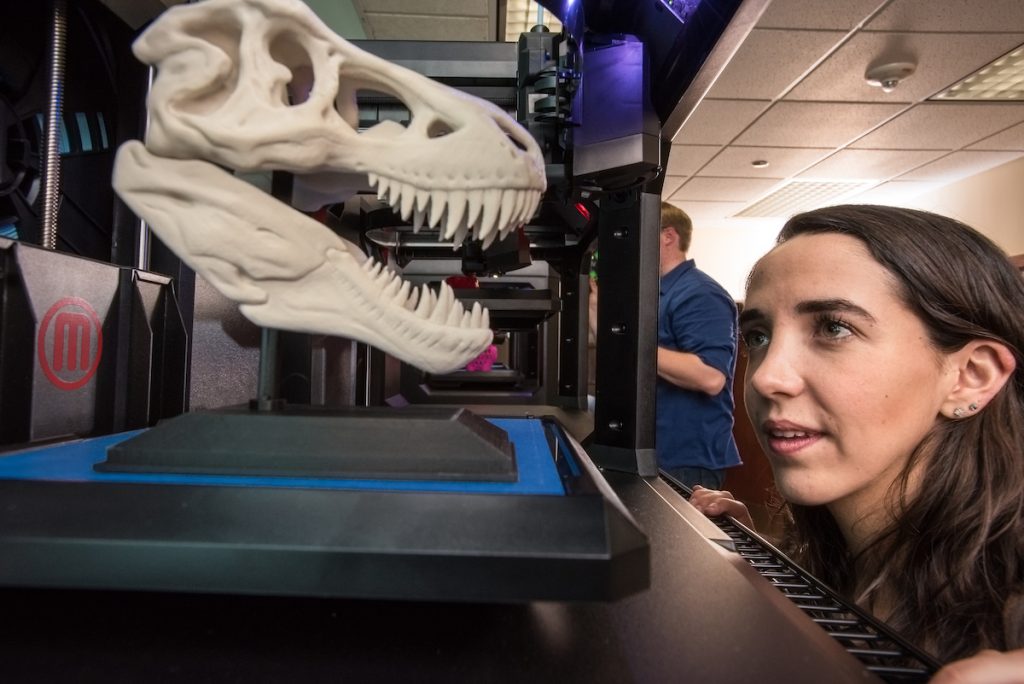The annual Flagstaff Festival of Science is approaching, and with it is a chance for Northern Arizona University faculty, staff and students to share their love of science and engineering with community members.
The NAU Science and Engineering Day runs from 1-4 p.m. Saturday, Sept. 23, and there are still spaces available for people who are interested in sharing their exciting and hands-on science projects.
The theme for this year’s event is Engineering Solutions. Booths include Cline Library’s Maker Lab, where visitors can experience 3-D printing; the scanning electronic microscope, providing a close-up look at ugly bugs and more from the natural world; and a booth for young children and tired parents to learn how play can help teach children vocabulary and be an indicator of possible communication disorders.
Individuals or groups who are interested in participating can fill out the participation form and email it to presidentialevents@nau.edu or send it to P.O. Box 4030 by Sept. 8. Call (844) 778-7487 with questions.
Also at the festival
Looking to learn more about science and engineering? The eight-day festival offers a number of classes and activities for people to learn more about their world. NAU will host Eli M. Wallace, the chief scientific officer of Peloton Therapeutics, who will speak from 3-4 p.m. Sept. 29 at the Science and Health Building, 700 S. Osborne Drive. His work focuses on novel therapeutic for the treatment of cancer and other diseases.
NAU also is hosting a Vice President for Research Innovation Series. The speaker series will take place at the Cline Library Auditorium.
6:30-8 p.m. Sept. 25: Emi Isaki, associate professor of communication sciences and disorders, will speak on typical concussion symptoms and how those symptoms can affect school, work and social activities.
6:30-8 p.m. Sept. 27: Bruce Hungate, Regents Professor of Ecosystem Ecology and director of the Center for Ecosystem Science and Society, will speak on how people affect the climate and ways people may be able to manage the climate, from energy to engineering to ecology.
6:30-8 p.m. Sept. 28: Christopher Edwards, assistant professor of physics and astronomy, will talk about what the robots scientists are sending to Mars are teaching us about the complex nature of the Red Planet.



